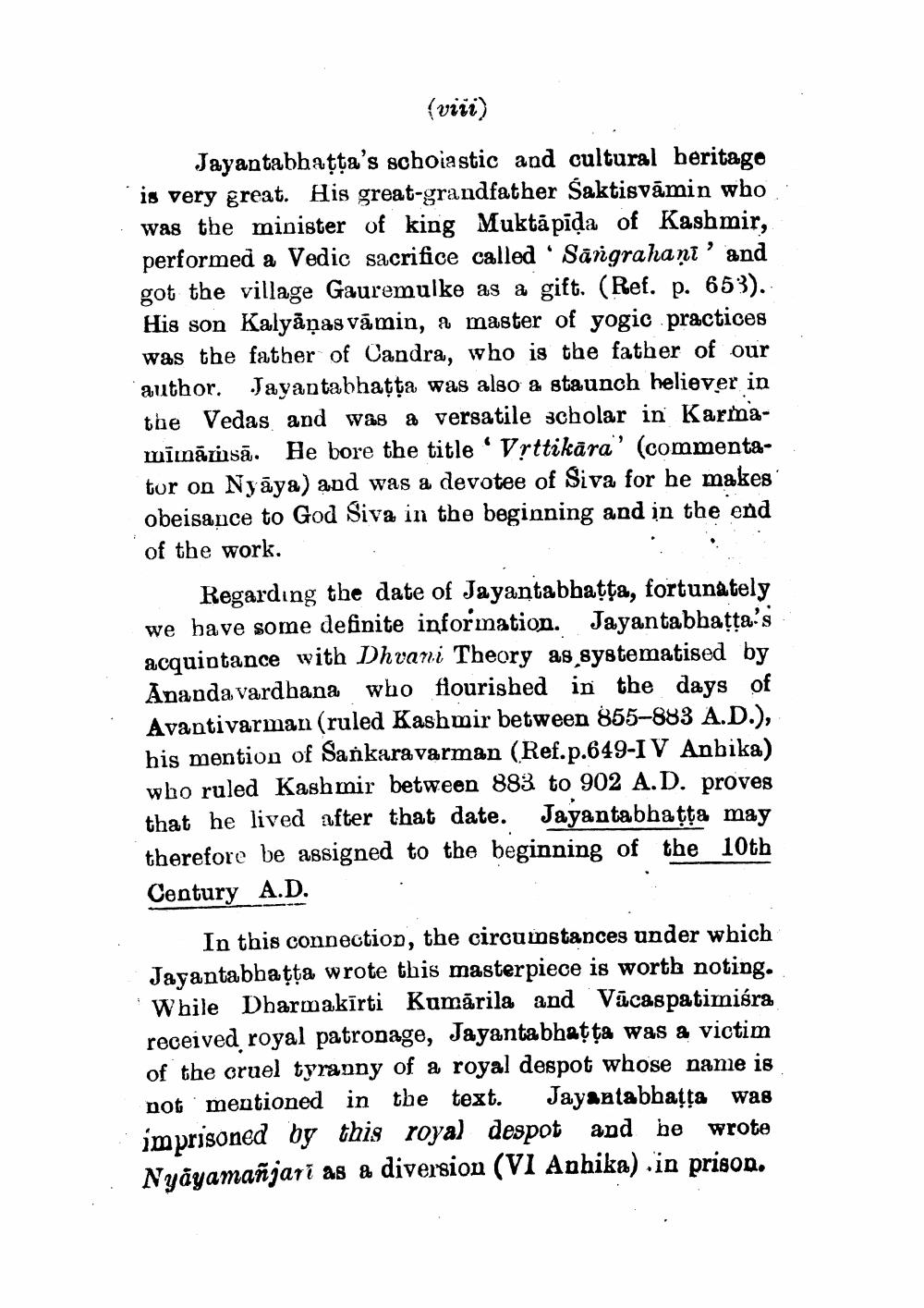Book Title: Nyayamanjari Part 01 Author(s): K S Vardacharya Publisher: Oriental Research Institute View full book textPage 9
________________ (viii) Jayantabhatta's scholastic and cultural heritage is very great. His great-grandfather Śaktisvāmin who was the minister of king Muktāpida of Kashmir, performed a Vedic sacrifice called 'Sangrahani' and got the village Gauremulke as a gift. (Ref. p. 653). His son Kalyāņas vāmin, a master of yogic practices was the father of Candra, who is the father of our author. Jayantabhatta was also a staunch heliever in the Vedas and was a versatile scholar in Karmamimnāzisā. He bore the title Vrttikara' (commentatur on Nyāya) and was a devotee of Siva for he makes obeisance to God Siva in the beginning and in the end of the work. Regarding the date of Jayantabbațţa, fortunately we have some definite information. Jayantabbatta's acquintance with Dhvani Theory as systematised by Ananda vardhana who flourished in the days of Avantivarman (ruled Kashmir between 855-883 A.D.), his mention of Sankaravarman (Ref.p.649-IV Anbika) who ruled Kashmir between 883 to 902 A.D. proves that he lived after that date. Jayantabhatta may therefore be assigned to the beginning of the 10th Century A.D. In this connection, the circumstances under which Jayantabhatta wrote this masterpiece is worth noting. While Dharmakīrti Kumārila and Vācaspatimiára received royal patronage, Jayantabhatta was a victim of the cruel tyranny of a royal despot whose name is not mentioned in the text. Jayantabbațța was imprisoned by this royal despot and he wrote Nyāyamañjari as a diversion (VI Adhika).in prison.Page Navigation
1 ... 7 8 9 10 11 12 13 14 15 16 17 18 19 20 21 22 23 24 25 26 27 28 29 30 31 32 33 34 35 36 37 38 39 40 41 42 43 44 45 46 47 48 49 50 51 52 53 54 55 56 57 58 59 60 61 62 63 64 65 66 67 68 69 70 71 72 73 74 75 76 77 78 79 80 81 82 83 84 85 86 87 88 89 90 91 92 ... 810
